In today’s rapidly evolving digital era, leveraging cutting-edge technologies to enhance educational experiences is not just an option but a necessity. Among various technological solutions, PHP stands out as a powerful and flexible server-side scripting language that empowers developers to create robust education solutions. This blog aims to explore the multifaceted benefits, core features, and future trends of Education solutions with PHP, setting the stage for a more interactive and accessible learning environment.
Harnessing Education Solutions with PHP: A Comprehensive Overview
The significance of digital solutions in education cannot be overstated. With an increasing reliance on online learning platforms and digital classrooms, the need for versatile, efficient, and accessible educational software is more pressing than ever. PHP, with its open-source nature and compatibility with various databases and hosting services, emerges as an excellent choice for developing comprehensive educational applications.
Why PHP for Educational Applications?
PHP offers unmatched benefits when it comes to developing education solutions. Its cost-effectiveness and open-source nature allow for budget-friendly development while fostering innovation and customization. Additionally, PHP’s scalability and flexibility ensure that educational applications can grow and adapt to the changing needs of educational institutions and their students. The wide community support and abundance of resources make it easier for developers to troubleshoot, enhance, and deploy educational applications effectively.
Core Features of PHP-based Educational Solutions
Education solutions powered by PHP come equipped with a range of essential features designed to streamline the management and delivery of educational content. These include:
- User Management Systems that enable efficient administration of student and faculty accounts.
- Real-time Communication Tools that facilitate seamless interaction between teachers and students.
- Content Management Systems for organizing and providing access to course material.
- Assessment and Testing Platforms to evaluate student progress and provide feedback.
- Integration with Third-Party APIs, expanding the functionality and resources available to both educators and learners.
Challenges and Solutions
Despite its benefits, deploying PHP in education solutions presents certain challenges. Security concerns are paramount, necessitating robust measures to protect sensitive educational data. Scalability is another critical focus area, ensuring applications can accommodate increasing numbers of users.
To address these challenges effectively, developers and educational institutions can adopt the following strategies:
- Implementing Advanced Security Protocols: Utilizing encryption, secure sockets layer (SSL) certificates, and rigorous authentication measures to safeguard user data and interactions within the platform.
- Optimizing for Scalability: Designing the application architecture to be scalable from the onset, using cloud services and load balancing techniques to handle fluctuations in user load efficiently.
- Regular Updates and Maintenance: Ensuring the PHP environment and all integrated third-party services are consistently updated to mitigate vulnerabilities and enhance application performance.
- Utilizing Efficient Data Management Practices: Adopting efficient data storage and retrieval methods to enhance the performance of educational platforms, even with large volumes of data.
- Engaging with the PHP Community: Leveraging the extensive PHP community for insights, troubleshooting, and adopting best practices in developing secure and scalable educational solutions.
Future Trends in PHP Development for Education
The future of Education solutions with PHP looks promising, with several emerging trends poised to redefine the educational landscape:
- The integration of AI and Machine Learning to personalize learning experiences and automate administrative tasks.
- Utilizing IoT to create more interactive and immersive learning environments.
- The shift towards mobile-first design acknowledges the growing prevalence of smartphones and tablets as primary learning devices.
- Increasing utilization of blockchain technology to securely store and validate educational credentials.
- The incorporation of gamification elements in learning platforms to enhance engagement and motivation.
- Embracing open-source tools and frameworks, such as Moodle, for cost-effective and customizable solutions.
- Leveraging the power of virtual and augmented reality to provide immersive educational experiences.
- The growth of cloud-based solutions, allows for easier access, scalability, and cost-effectiveness in educational technology.
- Incorporating social media elements to facilitate collaboration and knowledge sharing among students and teachers.
- The rise of microlearning, utilizing bite-sized chunks of information for efficient and continuous learning.
- With the ever-evolving landscape of education technology, PHP developer needs to stay updated and continuously improve their skills to adapt to these trends. By staying abreast of the latest advancements, PHP developers can create innovative, secure, and scalable solutions that meet the changing needs of modern education. Additionally, actively seeking out best practices in developing educational solutions can help ensure the success and efficiency of projects.
Conclusion
Education solutions with PHP offer a robust framework for developing innovative and effective learning platforms. By harnessing the power of PHP, educators, and developers can collaborate to create education solutions that are not only accessible and efficient but also adaptable to the future needs of the digital learning environment. As we look forward, the potential for PHP in transforming education is limitless, promising a future where learning is more engaging, personalized, and accessible to all.
To discover how our PHP services can transform your educational platforms and explore our innovative solutions, contact us today. Our expert team is prepared to collaborate with you to create dynamic, tailored educational experiences that meet the unique needs of students and educators worldwide, shaping the future of education.

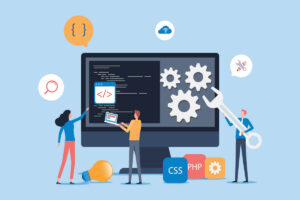

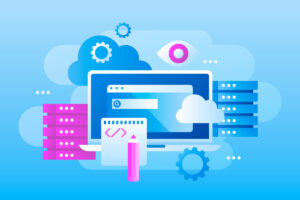
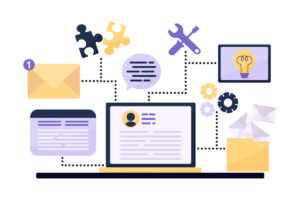
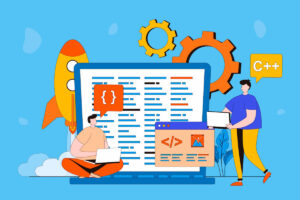


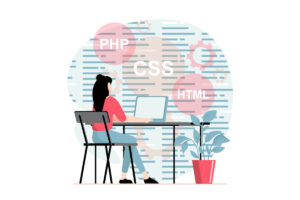



+ There are no comments
Add yours